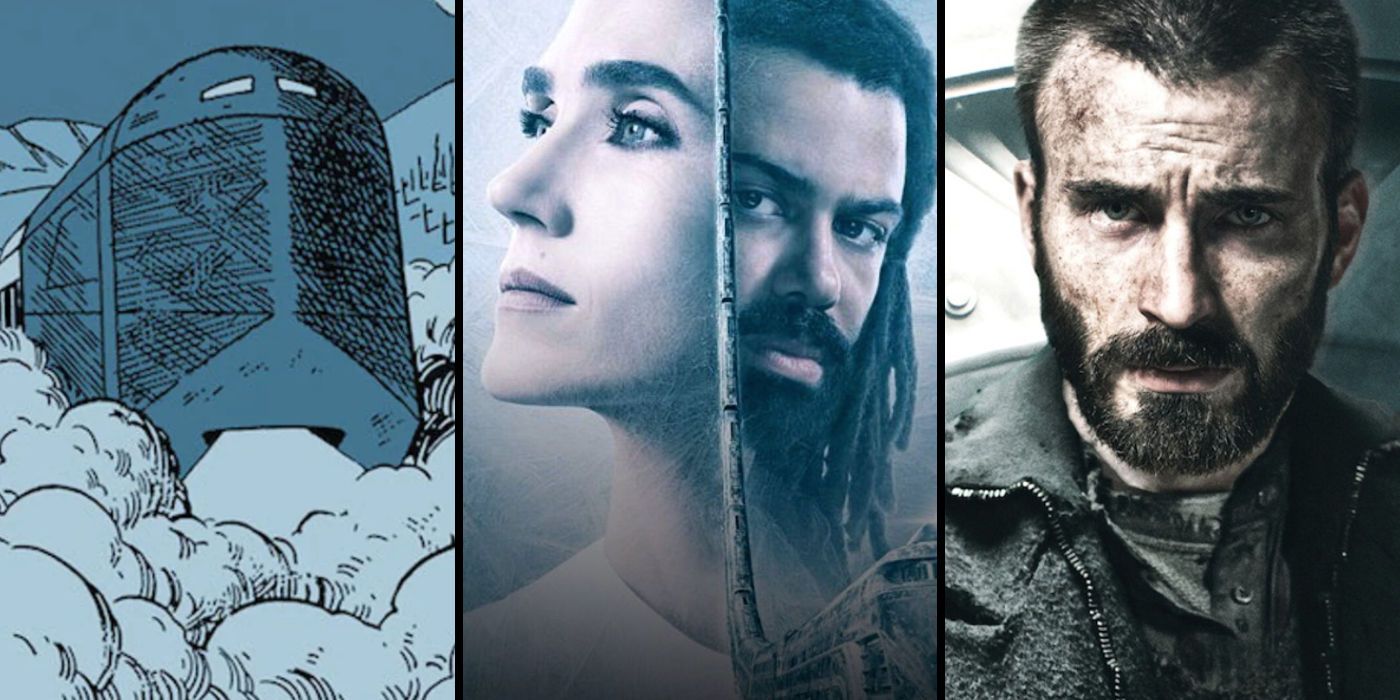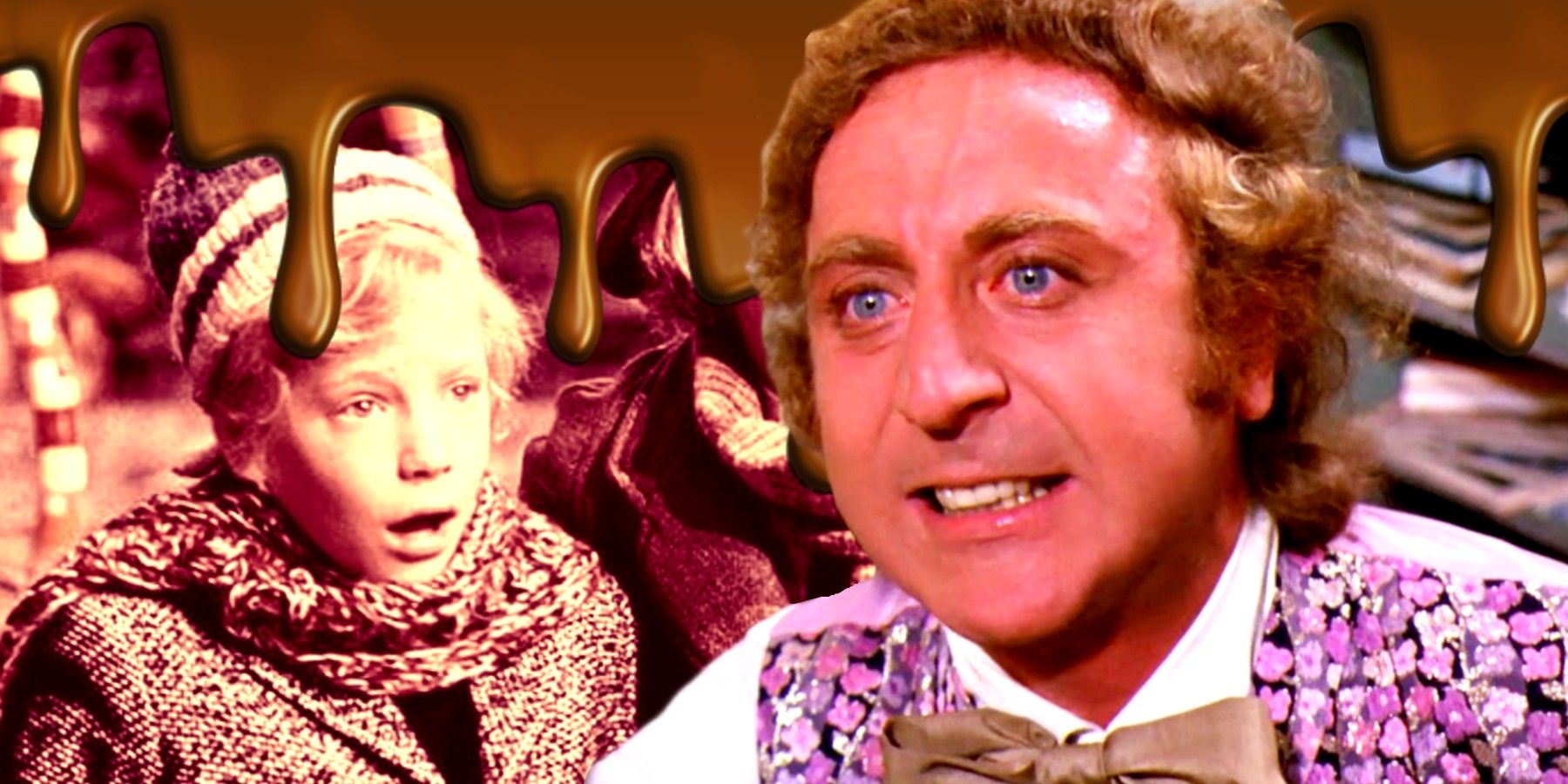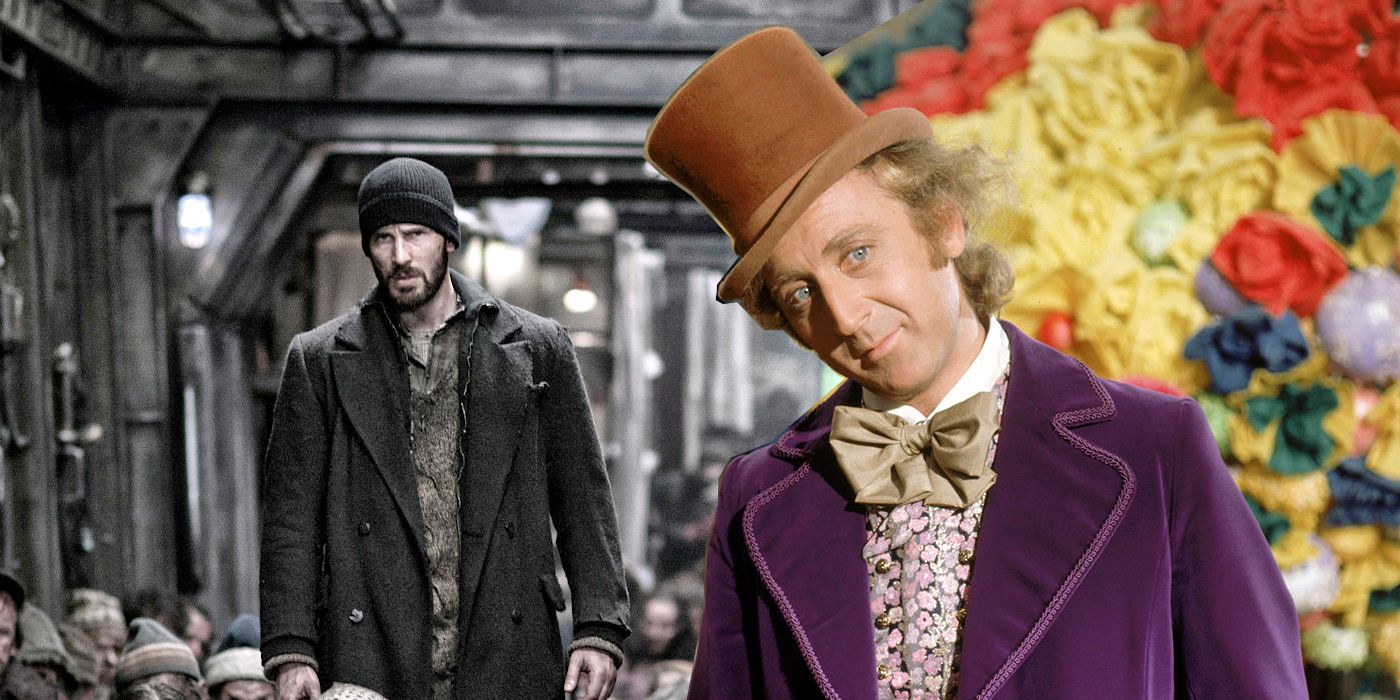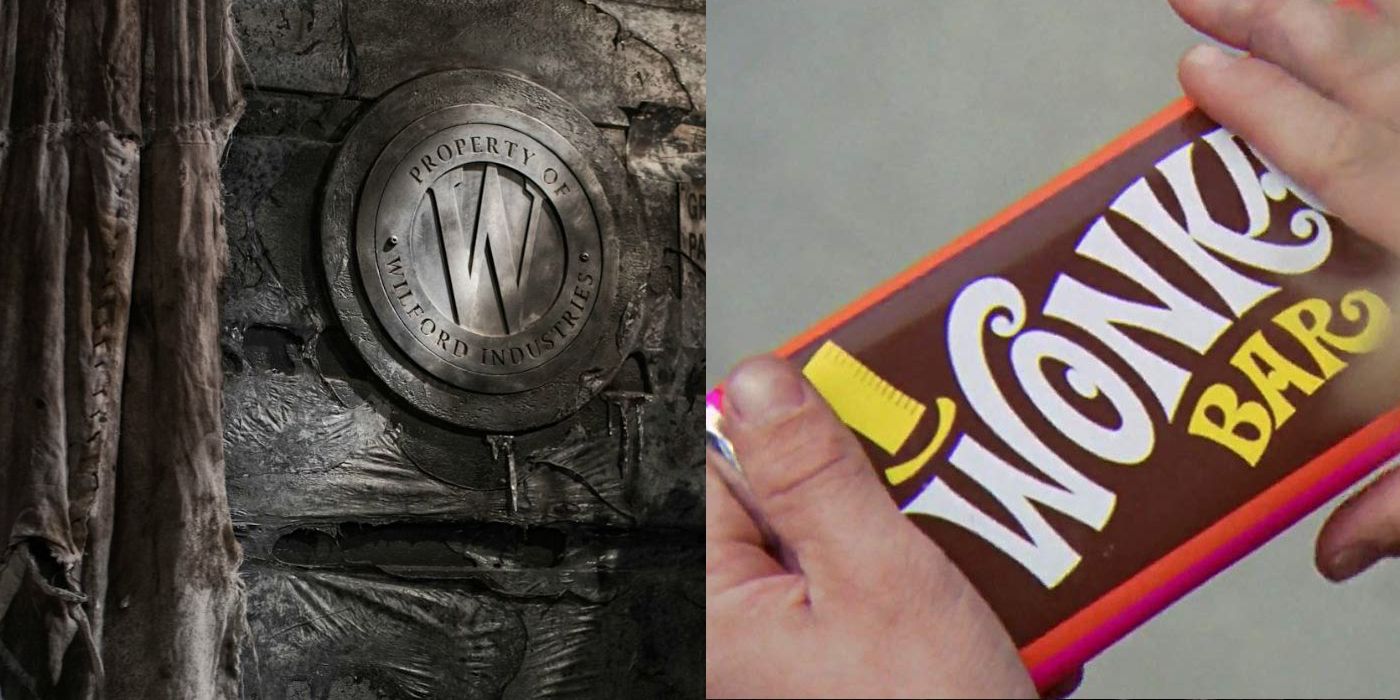Summary
- Both Snowpiercer and Willy Wonka explore class structure through dark and enchanting tales involving groups navigating challenging environments.
- Theories suggest Willy Wonka's protagonist Charlie Bucket grows up to be Wilford in Snowpiercer, inheriting dark tactics to maintain a train world.
- From self-sustaining spaces to choosing successors with hidden messages, links exist between the isolated factory and the self-sustaining train.
Snowpiercer (2013) is a sequel to Willy Wonka and the Chocolate Factory (1971) according to some fans. Snowpiercer is a post apocalyptic thriller that sees what's left of humanity attempting to survive a frozen world on trains. The inhabitants, however, are separated according to class with the less wealthy being treated as prisoners at the back of the train and the wealthy living an extravagant life at the front. Willy Wonka, on the other hand, is a story about a man giving children a tour of his candy factory, secretly looking for a successor among them. They seem very different.
Although Willy Wonka is colorful and fun while Snowpiercer is dark and violent, they both deal with economic class structure. Charlie Bucket comes from a lower-class family and sees golden tickets found by rich and overprivileged children. Similarly, Curtis Everett comes from the end of the train where it is dark, crowded, and they eat energy bars made from cockroaches. What's more, both deal with food, and both feature children. Even more interesting is the idea of Snowpiercer as a sequel to Willy Wonka, with Ed Harris playing the role of adult Charlie Bucket, now called Wilford.

Snowpiercer Timeline Shows Difference Between Movie & TV Show
Titan Comics unveils an official Snowpiercer timeline to clarify when the graphic novels, Bong Joon-ho's film, and the TNT series all take place.How Snowpiercer And Willy Wonka Have Similar Structures
Both Movies Use Similar Narrative Devices In Different Genres
Snowpiercer
- Director
- Bong Joon-ho
- Release Date
- July 11, 2014
- Cast
- Chris Evans , Jamie Bell , Tilda Swinton
- Runtime
- 2h 6m
Snowpiercer and Willy Wonka and the Chocolate Factory are both fascinating stories of a social divide. Most of the children who tour Willy Wonka's factory are born into a life of privilege and social power that Charlie doesn't have, allowing him a different perspective, and providing a window in for the audience. While Snowpiercer doesn't reveal the privileged population on the train right away, the idea is similar. It's the less affluent who provide the audience with their window into the story. The two movies are also similar in story structure after that point of view is established.
...the entire journey was a test elaborately concocted by a wealthy industrialist...
For starters, both Willy Wonka and Snowpiercer are about groups of people traveling through a fantastic environment. One by one, in each room, someone is lost, and the group is forced to continue without them until only one person remains. That person then finds out that the entire journey was a test elaborately concocted by a wealthy industrialist who needed a successor.
In Willy Wonka, Charlie Bucket is the one who makes it through in order to inherit a chocolate factory and the vast fortune that comes with it. In Snowpiercer, Curtis Everett makes it to the end where Wilford offers him his role as caretaker of the train's engine. Though Willy Wonka never had an official movie sequel, the theory is that Snowpiercer could act as one.

Willy Wonka Is A Serial Killer Theory Explained
Willy Wonka's eccentric nature and indifferent attitudes to the children have led to a popular theory that Wonka is actually a child serial killer.The Theory Posits That Wilford Learned His Ways From Willy Wonka
Charlies Uses What He Learns From Wonka To Become Wilford
Willy Wonka and the Chocolate Factory
- Director
- Mel Stuart
- Release Date
- June 30, 1971
- Writers
- Roald Dahl
- Cast
- Jack Albertson , gene wilder , Peter Ostrum , Denise Nickerson , Julie Dawn Cole
- Runtime
- 100 minutes
...Snowpiercer one is more about Charlie.
There have been numerous theories about Willy Wonka, but the Snowpiercer one is more about Charlie. The theory is this: Willy Wonka has built a completely isolated factory from the outside world, meaning it is entirely self-sustaining. In addition, he specializes in producing unusual foods and experimental modes of transportation. These are skills that he passes on to Charlie Bucket, who is to continue Wonka's legacy. This leads Charlie to abandon his original name and take on that of Wilford Wonka to honor his mentor.
Years later, during the time Snowpiercer takes place, he builds a self-sustaining train, foreseeing the devastating effects of the CW-7 gas that is the cause of the eternal winter in the film. However, in order to keep the train self-sustaining, he has to go to extreme measures to maintain the population, ordering the execution of certain percentages when it gets too high or orchestrating revolts to maintain, as Wilford says, "anxiety and fear, chaos and horror in order to keep life going."
With this in mind, Charlie Bucket, who is now known as Wilford Wonka, has used tactics and skills he's learned from his mentor (as seen in the tunnel scene in Willy Wonka) to create a world of decadence and imagination on a train, just as Wonka once did with his factory. He then goes even further by borrowing Wonka's method for finding a successor by hiding messages in food - in his case in the eggs meant for Curtis, just as Wonka put golden tickets in chocolate bars.
Nevertheless, if this theory is true, where are the Oompa Loompas from Willy Wonka and the Chocolate Factory, the tiny people that were responsible for running and maintaining his machines? Interestingly, Wilford mentions that whatever kept his train's engine running "recently went extinct," forcing him to employ small children, as he does in Snowpiercer. Not only does this explain the absence of the Oompa Loompas, but also thematically highlights the endings of both films: that children will inherit the future.








